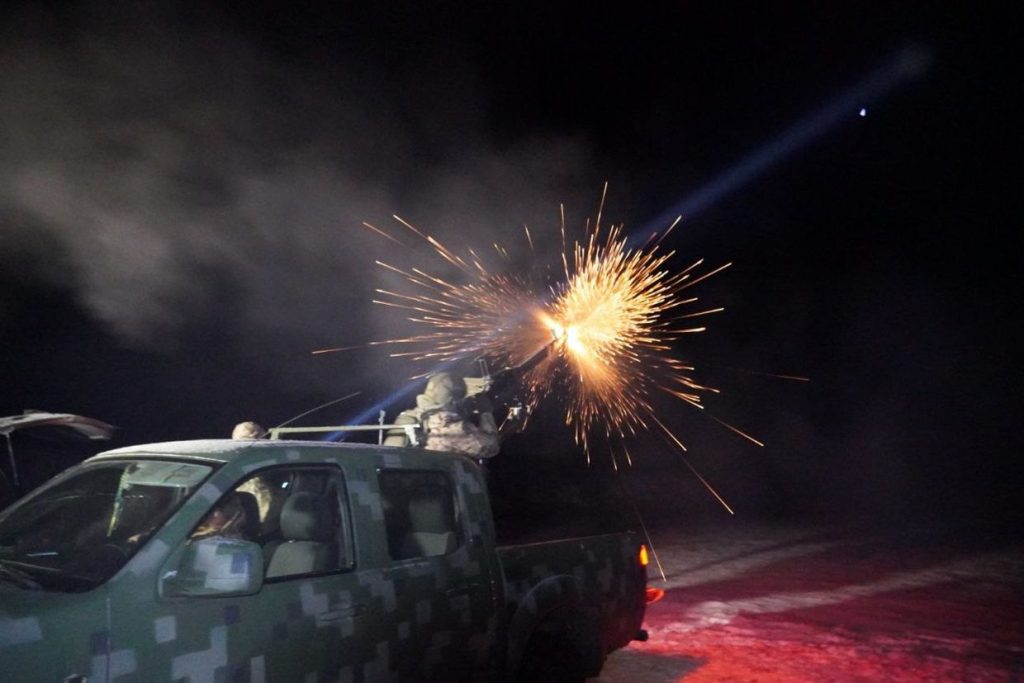The morning of April 19 saw Russian forces attacking Dnipropetrovsk Oblast in Ukraine with missiles, resulting in the death of a woman and injuring at least nine others. The attacks also caused a fire at a five-story building in Dnipro, partially destroying the building and injuring civilians. Dnipro Mayor Boris Filatov reported that the attacks struck the very center of the city, with more injured victims possibly trapped under the rubble. The attacks also damaged an infrastructure facility in Kryvyi Rih. Russia has been intensifying its missile and drone strikes on Ukraine, targeting critical infrastructure and residential areas, with repeated attacks on Dnipro in recent weeks that have caused significant damage and casualties.
The attacks on Dnipropetrovsk Oblast are part of a larger pattern of Russian aggression against Ukraine, including missile strikes on other regions such as Lviv, Rivne, and Ivano-Frankivsk. Critical infrastructure has been targeted, with explosions reported in Dnipro and Odesa. The Dnipro Hydroelectric Power Plant, Ukraine’s largest hydroelectric station, was targeted in a previous attack, causing substantial environmental damage. Russia has also been escalating its attacks on energy facilities across Ukraine, with large-scale assaults on March 22 and 29. The ongoing conflict has led to a significant humanitarian crisis in Ukraine, with civilian casualties and widespread destruction of infrastructure.
Ukraine has responded to the aggression with efforts to defend its territory and people. Recent developments include the destruction of missile launchers and radar stations at a Russian military airfield in Crimea, as reported by Ukrainian military intelligence. Ukraine has also accused Russia of using illegal tear gas on the battlefield, further heightening tensions between the two countries. Ukrainian President Zelensky has announced plans to increase production of Bohdana howitzers, a move aimed at bolstering the country’s defense capabilities. The conflict shows no signs of abating, with both sides continuing to engage in military activities and escalating the violence.
The international community has condemned Russia’s actions in Ukraine and called for an immediate end to the conflict. The United Nations, European Union, and other global organizations have urged Russia to respect Ukraine’s sovereignty and territorial integrity. Sanctions have been imposed on Russia for its aggression, with the aim of pressuring the country to withdraw its forces from Ukrainian territory. The conflict has raised concerns about the implications for regional stability and global security, with fears of a wider conflict erupting if the situation is not resolved peacefully. Diplomatic efforts are ongoing to seek a resolution to the crisis and prevent further escalation of hostilities.
Support for independent journalism in Ukraine is crucial in providing accurate and timely information on the conflict and its impact on the country’s population. Journalists are on the front lines of reporting on the situation, often risking their lives to bring to light the realities of the conflict. By supporting independent media outlets in Ukraine, individuals can help ensure that the truth is told and that the voices of those affected by the conflict are heard. The role of journalism in informing the public and holding governments accountable is essential in times of crisis, and supporting independent journalism is an important way to contribute to efforts to bring about peace and stability in Ukraine. By joining the fight for independent journalism in Ukraine, individuals can make a meaningful difference in the coverage of the conflict and its consequences.















